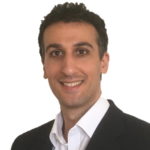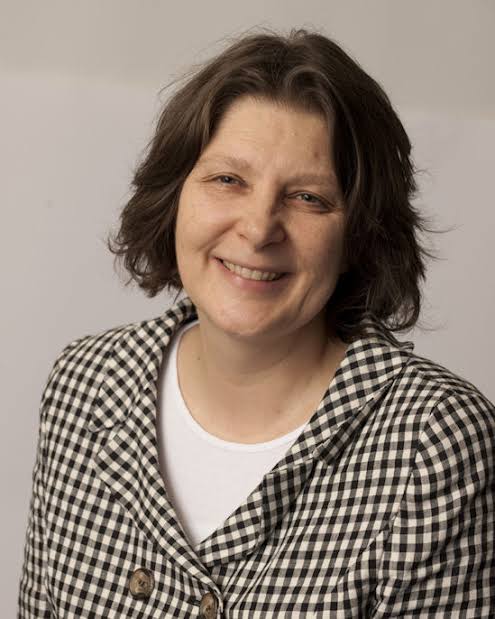Focus on ano-rectal and hepatocellular carcinoma (HCC)
Our vision is to develop predictive biomarkers and personalised radiotherapy-based combination treatments
in anal, liver, and rectal cancers, through understanding the influence of tumour-associated viruses and
microbiomes upon pathological, radiological, and immunological processes. Radiotherapy research in Leeds has revolutionised the treatment of anal cancer, through successive clinical trials, bringing about a paradigm shift from morbid surgery to kinder and smarter chemotherapy-radiotherapy combinations. Likewise, rectal cancer radiotherapy research is world-leading in Leeds.
In hepatocellular carcinoma, the molecular, immune and epigenetic impact of existing and past hepatitis virus infections on radiotherapy outcomes is less explored. We will build on our internationally leading work on radiotherapy treatment optimisation developed through RadNet, biomarker discovery, artificial intelligence, translational science, ongoing multicentre
trials, and expand on new opportunities in discovery bioscience and microbiome studies to accelerate our understanding of response and resistance mechanisms.
Future impact – Greater understanding of underlying virological, bacterial, pathological, immunological and radiotherapy biomarkers will improve treatment responses and result in smarter, kinder treatments.
Theme Leads
Professor Adel Samson (Co-Lead)

Professor of Cancer Medicine and Immunotherapy; Consultant Medical Oncologist
Staff Profile: Professor Adel Samson | School of Medicine | University of Leeds
I am a Professor of Cancer Medicine and Immunotherapy and a Consultant Medical Oncologist specialising in the treatment of liver cancers. My research spans multiple key steps in clinical immunotherapy development, including pre-clinical laboratory conceptualisation and optimisation, early phase clinical trials, and translational studies using clinical trial samples. My laboratory group focuses on harnessing the immune system to treat solid malignancies, optimising the efficacy and delivery of immunotherapies to tumours, and understanding the immunological effects of radiotherapy, histotripsy and oncolytic virus therapy. As Chief or Principal Investigator, I lead a portfolio of translational clinical trials focused on oncolytic viruses and liver cancers.
Professor Andrew Macdonald (Co-Lead)

Professor of Tumour Virology
Staff Profile: Professor Andrew Macdonald | Faculty of Biological Sciences | University of Leeds
I am a Professor of Tumour Virology, and I lead a group that studies the biology of DNA tumour viruses. I am the Pro-Dean for Research and Innovation for the Faculty of Biological Sciences.
Research interests
DNA tumour viruses are the causative agents of around 15% of all cancers in humans and also cause significant global morbidity. My group works across disciplines with clinicians and industrialists to generate key insights into the mechanisms of virus replication, persistence and disease with the overarching goal of finding new treatments. Using this approach also enables us to uncover new avenues of biology and to learn more about the ways in which cells function in the host. Our focus is predominantly on members of the human papillomavirus and polyomavirus families, both as agents of disease and as model systems for our fundamental biology research.
Professor Nick West (Co-Lead)

Professor of Gastrointestinal Pathology / Honorary Consultant in Gastrointestinal Pathology
Staff Profile: Professor Nick West | School of Medicine | University of Leeds
I am an academic gastrointestinal and molecular pathologist with a research interest in colorectal cancer. My PhD looked at how pathologists can determine the optimal operation for patients with colon and low rectal cancer, and how this can be fed back to surgeons to improve outcomes for patients. I also developed tumour cell density as a novel method of assessing the degree of response to preoperative therapy in colorectal cancer. My time is split 50:50 between my academic activities and NHS service work.
In the NHS I have a specialist interest in gastrointestinal histopathology and am involved in the development of the routine molecular pathology service. I sit on the trial management group of 11 colorectal cancer trials.
Research interests
My research identifies ways to improve outcomes for patients with colorectal cancer, largely through clinical trials. I am currently working on over 20 phase II and III national and international clinical trials involving the development and validation of new molecular predictors of response to therapy, and surgical technologies. Our research group has strong links with surgeons, oncologists and radiologists in Leeds, and collaborate extensively with a number of groups across the UK and internationally. Our clinical trials are displayed on our website: www.virtualpathology.leeds.ac.uk/clinical
Emerging leaders
Dr Robbie Samuel

I am a clinical oncology specialist trainee in the West Yorkshire programme. My PhD was entitled ‘Rationally developing the next generation of personalised target drug-chemotherapy combination trials in anal cancer’. I am interested in early phase translational trials in lower GI cancer using novel radiotherapy-drug combinations.
Dr Henry Wood

Lecturer in Translational Bioinformatics
Staff Profile: Dr Henry Wood | School of Medicine | University of Leeds
I am a lecturer in translational bioinformatics and work to coordinate wet lab and bioinformatics analysis, providing clinically relevant interpretation of large-scale datasets. I mainly work with genomic and microbiome data for various cancer types, particularly colorectal cancer. I am involved in routine data analyses as well as developing bespoke pipelines for novel areas of research.
Dr Chiara Gorrini
Text place holder
Workstream 5 – Using tumour viruses to delineate radiation sensitivity and resistance
WS5 aims to use critical mass in HPV and HCV discovery science, translational immunology and clinical trial
leadership in HCC and the PLATO platform trial, to understand the impact of oncogenic virus infections on
radiotherapy outcomes. Utilising AI, we will derive immunological biomarkers predictive of radiotherapy
outcomes and rationally predict combination therapies to overcome radiotherapy resistance. The leads for this workstream are Professor Andy Macdonald, Professor Adel Samson and Professor Steve Griffin.
Professor Stephen Griffin

Professor of Viral Oncology
Staff Profile: Professor Stephen Griffin | School of Medicine | University of Leeds
I am a Professor of Viral Oncology in the School of Medicine at the University of Leeds. I came to Leeds in 2001 to research the hepatitis C virus (HCV).
Research interests
We work on on viruses, both as causes and as cures for human disease, with the specific aims to:
- understand and exploit ion channels encoded by viruses, known as viroporins;
- explore how viruses drive human malignancies, specifically liver (hepatocellular- and intrahepatic cholangio- carcinomas) and brain cancers (glioblastoma multiforme); and
- develop viruses as immunotherapies to treat human cancer.
Workstream 6 – Using next generation pathology to characterise the immune system and microbiome
Our aim is to bring together world-leading anorectal cancer pathology, microbiome research and artificial
intelligence to characterise the role the microbiome and immune system play in radiotherapy response and
develop novel predictive biomarkers to improve patient outcomes and minimise toxicity. The workstream leads are Dr Nick West, Professor Philip Quirke and Professor Michelle Peckham.
Professor Philip Quirke

Professor of Pathology
Staff Profile: Professor Philip Quirke | Faculty of Biological Sciences | University of Leeds
Professor Michelle Peckham
Professor of Pathology, Faculty of Biological Sciences

Staff Profile: Professor Michelle Peckham | Faculty of Biological Sciences | University of Leeds
